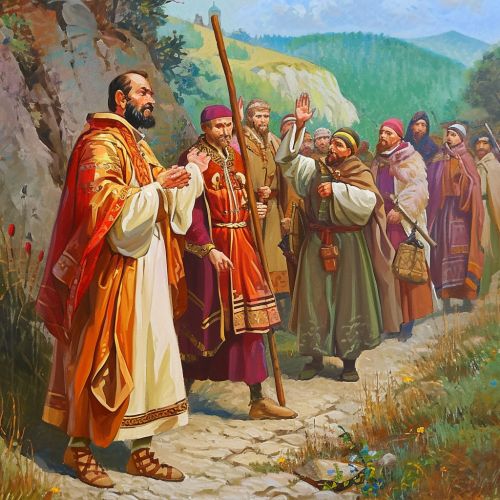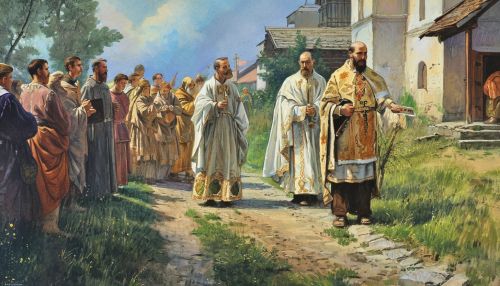Cyril and Methodius
Early Life
Cyril and Methodius were born in the early 9th century in the city of Thessaloniki, which was then part of the Byzantine Empire. The brothers were of Greek descent, and their father was a high-ranking military officer in the Byzantine service. Cyril, the younger of the two, was born around 827 and was originally named Constantine. Methodius was born around 815 and was given the name Michael at birth.
Education
Both brothers received a good education. Cyril was particularly gifted and was sent to Constantinople to study under the bishop Photius, who later became the Patriarch of Constantinople. There, Cyril mastered several languages and studied philosophy, theology, and other subjects. Methodius, on the other hand, chose a military career in the service of the Byzantine Empire, but later retired and became a monk.
Missionary Work
In the 860s, the brothers began their missionary work among the Slavic peoples. Their first mission was to the Khazars, who had requested Christian educators from the Byzantine Emperor Michael III. Cyril and Methodius translated parts of the Christian Bible into the Old Church Slavonic language and created the Glagolitic alphabet, the first alphabet used to transcribe Old Church Slavonic.


Conflict with German Clergy
The brothers' work was not without controversy. They faced opposition from German clergy who objected to their use of the vernacular in liturgy. The German clergy insisted on the use of Latin, and they accused Cyril and Methodius of heresy. The brothers defended their work before Pope Adrian II, who approved their use of Slavonic in the liturgy.
Later Life and Legacy
Cyril died in Rome in 869, and Methodius continued their work alone. He was consecrated as the Archbishop of Moravia and continued to translate religious texts into Slavonic. Methodius died in 885. The brothers' work had a lasting impact on the Slavic world. They are venerated in the Eastern Orthodox Church, the Roman Catholic Church, and the Anglican Communion. They are also recognized as co-patrons of Europe by the Roman Catholic Church.
See Also
History of the Slavic peoples Christianization of Bulgaria History of the Cyrillic script
